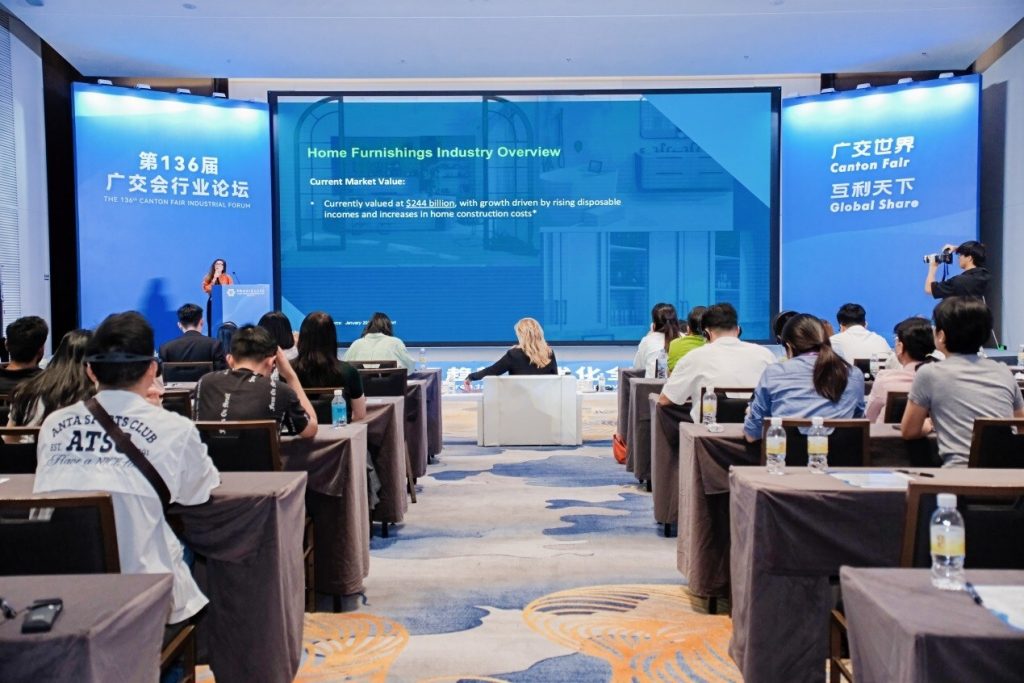The 136th Canton Fair recently spotlighted future trends in home furnishings, hosting an Industry Trend Forum focused on upcoming design directions and consumer insights for the sector. Co-organised by the World’s Global Style Network (WGSN), the event served as a platform for discussing the “White Paper on Home Trends in 2025” and “White Paper on Future Consumers in 2026” reports, which outlined a roadmap for home living and evolving consumer profiles.
The forum gathered industry leaders and trend experts, offering an in-depth analysis of how sustainability, personalisation, and technology are reshaping home furnishings. The report on “Home Trends in 2025” adopted the STEPIC framework, an approach that assesses six factors—society, technology, environment, politics, industry, and creativity—to provide a holistic view of the forces shaping the market.
In this analysis, WGSN’s report forecasts that sustainable materials, intelligent design, and customisation will define the homes of the future. These trends, as noted by WGSN’s Ye Wenshi, will play a pivotal role in product design and interior aesthetics, influencing how individuals interact with their living spaces and, more broadly, with society and culture. Multifunctional design and material innovation were highlighted as areas ripe with potential for meeting consumer demand for both practicality and emotional connection in product choices.
The emphasis on sustainability within the 2025 trends report highlights an increased focus on reducing environmental impact while catering to evolving tastes for tailored, high-quality furnishings. Ye explained that this comprehensive approach would enable designers and industry leaders to align products with the needs of modern consumers, who are looking for items that blend efficiency and style with environmental responsibility.
Alongside home trends, the event’s second report, “Future Consumer in 2026,” delved into the shifting dynamics of consumer behaviour. WGSN’s analysis identified four emerging consumer archetypes—“truth-seekers,” “autonomists,” “shimmers,” and “synergists”—each representing a distinct set of values and aspirations. According to Wu Anjing, a WGSN consultant, these profiles reflect consumers’ increasingly complex emotions as society moves from an information age to an era shaped by creativity and imagination.
Wu emphasised the growing demand for authenticity, personalised experiences, and emotional resonance in consumer products. As a result, businesses must adopt innovative strategies to engage consumers effectively and foster brand loyalty. Wu suggested that a focus on personalised marketing and tailored services will help companies navigate this transformation and resonate with consumers on a deeper level.
Adding a perspective on market shifts in the United States, Nancy Yamada, Executive Director at Emerald Holding, Inc., provided insights into American consumer preferences. Yamada noted that urbanisation has spurred demand for multifunctional, space-saving furniture, while handmade and personalised décor items are also gaining popularity. These trends reflect a wider global movement towards thoughtful design and individual expression within the home space.
The forum underscored how the evolving landscape of home furnishings is closely intertwined with broader societal and environmental changes. By adopting sustainable and intelligent design practices and understanding the nuanced needs of future consumers, the industry aims to stay relevant and innovative. The insights shared at the forum will likely guide companies as they refine strategies to meet the demands of tomorrow’s market. The 137th Canton Fair will be held from April 15 to May 5, 2025 in Guangzhou. For more information, please visit https://www.cantonfair.org.cn/en-US


